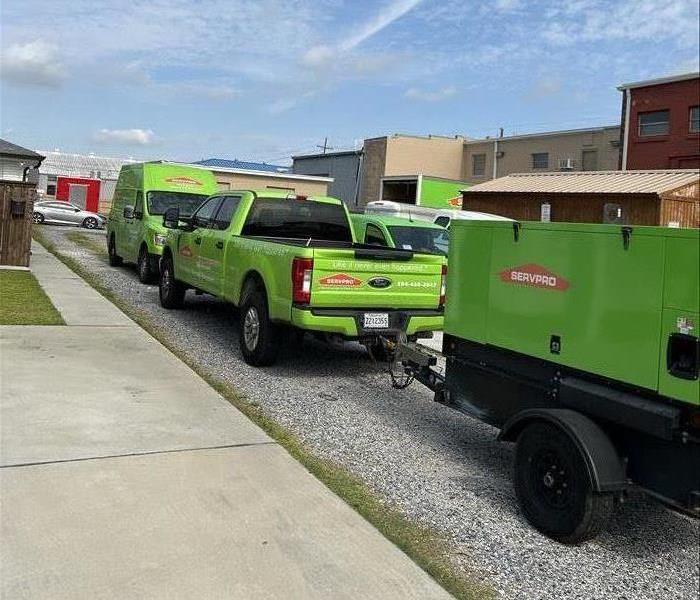2022's Hurricane Survival Guide
5/31/2022 (Permalink)
Get ready, Louisiana, hurricane season officially starts June 1 and runs through November 30.
According to the NOAA, we will be looking at another above-average season. Whether you are a long-time resident of Louisiana or a brand new transplant it is always important to be reminded of the impacts of hurricanes and how you can prepare.
Before the storm If you were here for last year's storm there's a good chance you already have a hurricane kit. If not, start gathering your supplies! Ensure that each person (pets included) has nonperishable food and water for at least seven days. Your kit should also include flashlights, a radio, cash, a first-aid kit, and medicine at a minimum. Due to large shortages at this point in time it is imperative you do not wait until the last minute to gather these supplies.
You should also consider inspecting your shutters, roof, and fences in case repairs or replacements are needed and check that your policies are current and if you have sufficient coverage for hurricanes with your homeowner's insurance. Due to the constant construction in our area, it is also important to check for updated hurricane evacuation routes.
While the storm is coming fuel up your car, charge your power banks, withdraw cash, and buy supplies you still need. Start prepping your home by bringing your patio furniture, pets, and potted plants inside. Tie-down anything that could become airborne and if you have a boat, secure it properly. Start monitoring the local news for updates from the National Hurricane Center, your local National Weather Service office, and local officials on the storm’s track, what type of hazards to expect, and if there are any evacuation orders in effect. Get sandbags, find a safe place to park your car, put your shutters up, and don’t leave trash on the curb. If you don’t have shutters or hurricane-proof windows, board up your windows with 5/8-inch plywood.
During the storm and after Stay away from windows and doors and don't leave the house. As tempting as it is to watch mother nature do her thing, do not go outside. Once officials have said it is safe to do so, report property damage and power outages. Monitor for curfew and boil-water-order notices. If you want to use a generator, make sure to keep it at least 20 feet from a home, including your neighbors, to prevent carbon monoxide poisoning. If you plan to go out be careful on the roads since there might be downed trees, fallen power lines, traffic lights that aren’t working, and debris. Some roads might also be flooded. Reminder, do not drive or walk through standing water.
If your home or business experiences water, wind, fire, or mold damage, give the professionals a call. We are your storm damage experts!



 24/7 Emergency Service
24/7 Emergency Service